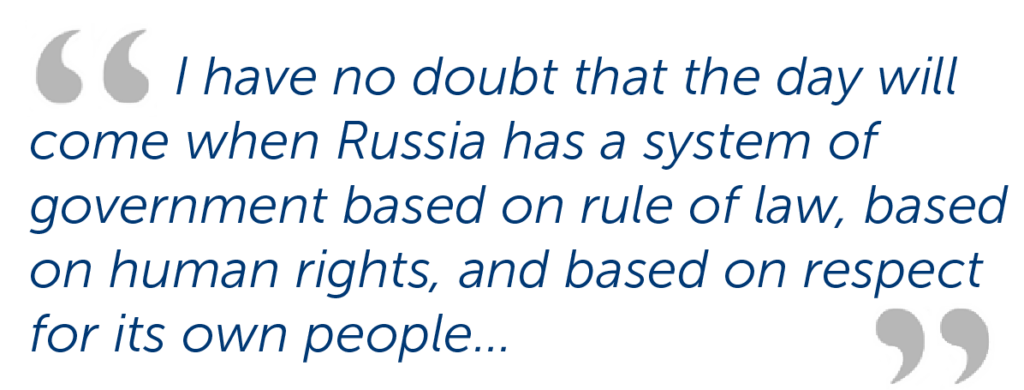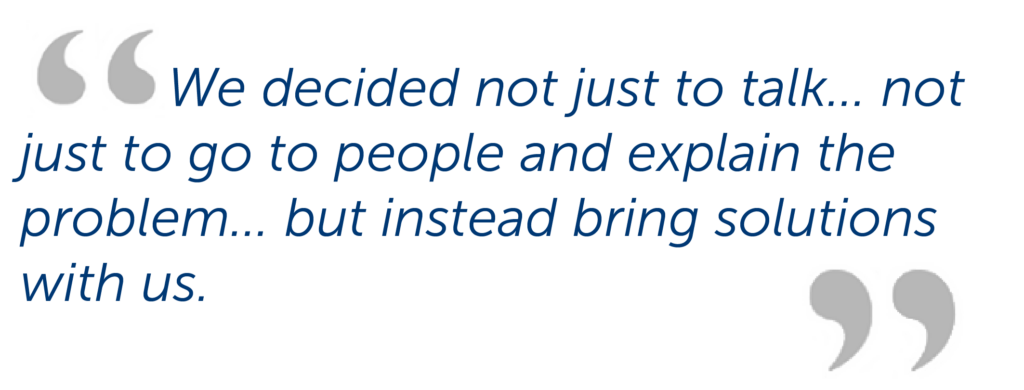
Interview Series
Ketakandriana Rafitoson (Madagascar)
Ketakandriana “Kat” Rafitoson is a Malagasy lawyer and political scientist in Madagascar, where corruption is a pernicious problem.
She has been an activist in civil movements such as Wake Up Madagascar and Libery 32 for more than 15 years.
Brahim Bilal Ramdhane (Mauritania)
Brahim Bilal Ramdhane was born into slavery in Mauritania and spent 20 years in forced labor. Today, he is the Vice President of the Initiative for the Resurgence of the Abolitionist Movement (IRA), an organization that works to eradicate slavery in Mauritania.
In 2014, IRA launched a Freedom Caravan, traveling throughout Mauritania to raise awareness about new laws, encouraging debates and breaking the silence about slavery.
Ivan Marovic (Serbia)
Ivan Marovic was one of the leaders of Otpor, the student resistance movement that played an important role in the downfall of Slobodan Milosevic in Serbia.
After the successful democratic transition in Serbia, Marovic began consulting with various prodemocracy groups worldwide and became one of the leading practitioners in the field of strategic nonviolent conflict.
Read Ivan’s book – published by ICNC – ‘The Path of Most Resistance’
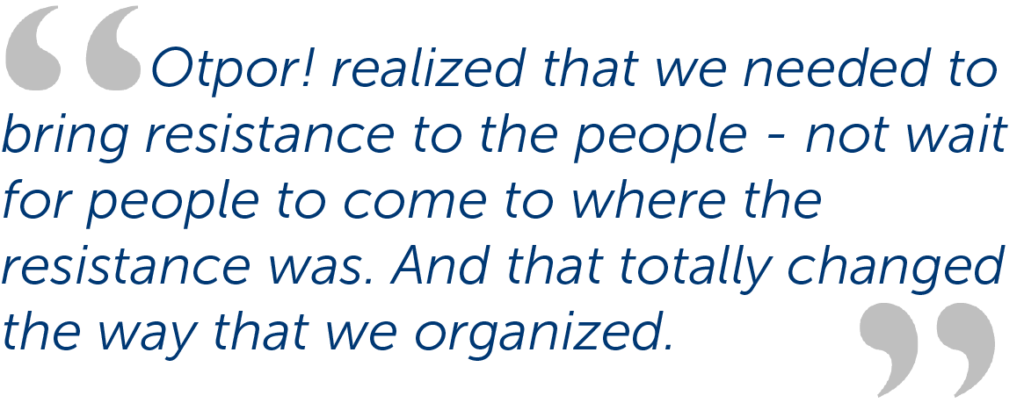
Evgeniya Chirikova (Russia)
Since the summer of 2006, Evgeniya Chirikova has been a central factor in a grassroots movement to save Khimki National Forest in Russia. Forced to flee her country in 2014 following a confrontation with Putin’s regime, she is now based in Estonia where she manages the social media portal activatica.org to support grassroots groups in Russia.
Read Evgeniya’s post on ICNC’s ‘Minds of the Movement’ blog:
Russia: Inside the Nonviolent Struggle to Save Khimki Forest
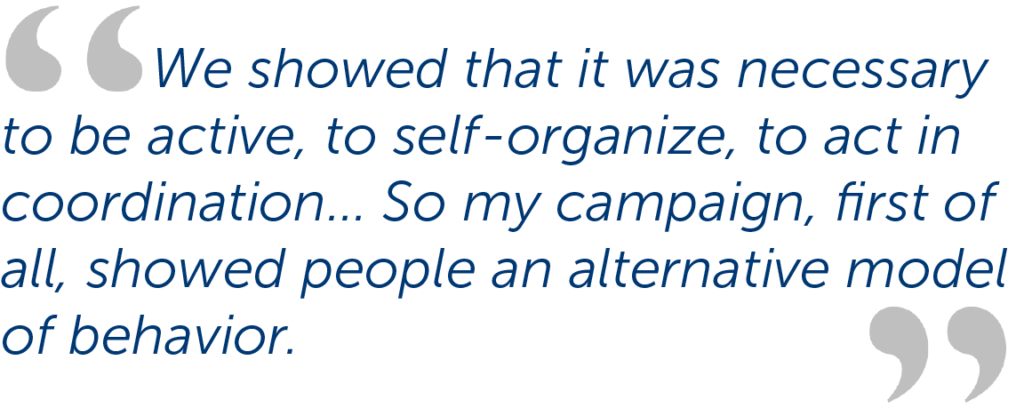
Dr. Jonathan Pinckney
Dr. Jonathan Pinckney is a program officer and research lead for the Program on Nonviolent Action at the United States Institute of Peace (USIP). He is also an ICNC research fellow.
Dr. Pinckney has authored two monographs through the ICNC Monograph Series:
When Civil Resistance Succeeds: Building Democracy After Popular Nonviolent Uprisings
Making or Breaking Nonviolent Discipline in Civil Resistance Movements
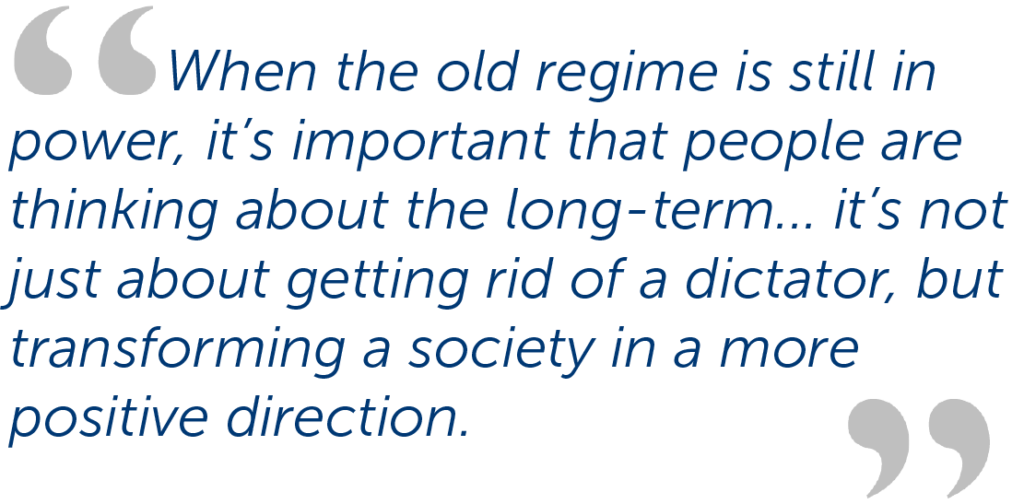
Dr. Mazin Qumsiyeh (Palestine)
Professor Mazin Qumsiyeh teaches and does research at Bethlehem and Birzeit Universities. He is also the author of Popular Resistance in Palestine and is the Founding Director of the Palestine Museum of Natural History in Bethlehem. Qumsiyeh was harassed and arrested for non-violent actions but also received a number of prestigious awards for these same actions.
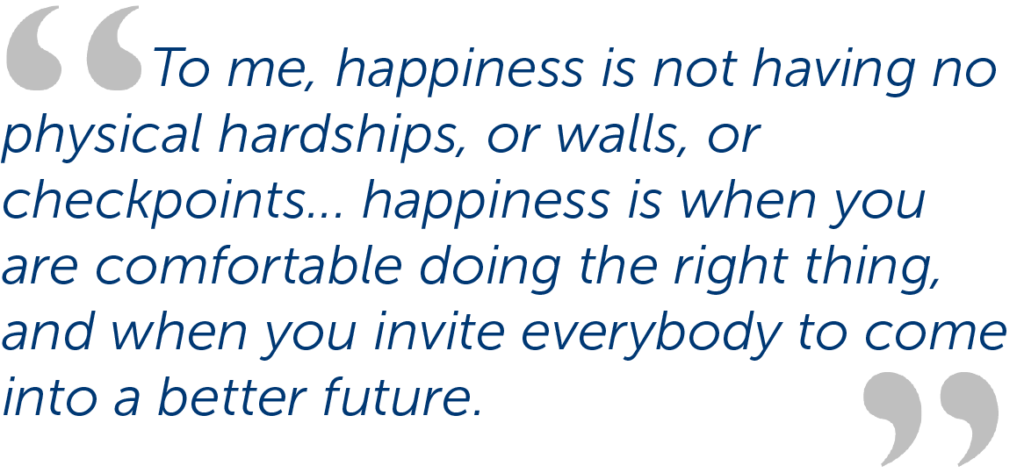
Mohsen Sazegara (Iran)
As an advisor to Ayatollah Khomeini during the Iranian Revolution, Mohsen Sazegara witnessed the power of nonviolent resistance as the U.S.-backed Iranian Shah was overthrown in 1979. He went on to support the establishment of the Islamic Republic and the Islamic Revolutionary Guard Corps, but about a decade later, he began taking issue with the regime’s human rights record, as well as many other issues, and was imprisoned several times. He eventually left the country in 2005. Now, Sazegara uses his position as a diaspora activist to equip his fellow citizens with the civil resistance tools and knowledge they need to succeed in pushing for democracy in Iran.
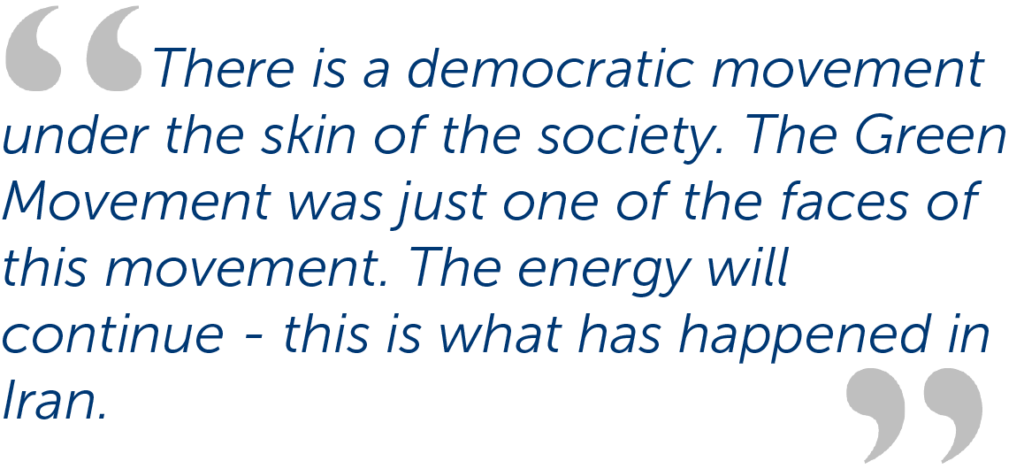
Vladimir Kara-Murza (Russia)
Vladimir Kara-Murza is a Russian opposition leader and outspoken critic of Vladimir Putin. Kara-Murza has been hospitalized twice after suspected poisonings in Moscow. He is a member of Solidarnost (“Solidarity”), which organized mass protests after national elections in 2011. Kara-Murza served as an adviser to Duma (Russian assembly) opposition leader Boris Nemtsov from 2000 to 2003 and was a candidate for parliament in 2003.
